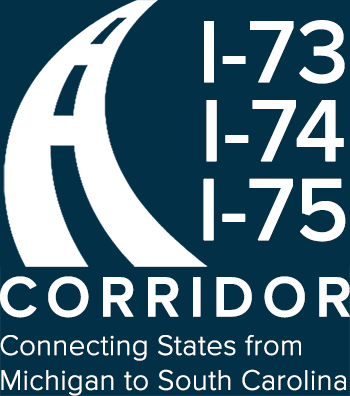Safer Roads and Stronger Communities Along the I-73/74/75 Corridor
Designed to modern interstate standards, the corridor will enhance driver safety through improved roadways, better traffic flow, and safer intersections. Reducing congestion and outdated local routes will minimize accidents and provide more reliable travel for residents and visitors.
Safety: Protecting Lives
The Interstate System includes the safest roads in America. Since construction began in 1956, automobile fatality rates have declined 76% (from 60.5 to 14.5 fatalities per billion vehicle miles). According to a 1996 analysis for the American Highway Users Alliance, “40 Years of the U.S. Interstate Highway System” (Wendell Cox & Jean Love), interstate highways have saved an estimated 187,000 lives over four decades—that’s nearly 13 lives every day for 40 years. Interstates remain ~60% safer than other roadways, with injury rates ~70% lower.
Sources / Studies:
- Proposed I-73 & SELL Corridors Hurricane Evacuation Analysis — [Study Report] by Atkins | [Presentation] by Atkins
Hurricane Evacuation
During peak tourist season, the Grand Strand’s population exceeds 750,000. Current evacuation routes (US-501, US-9) quickly congest during emergencies. I-73 will provide a faster, safer evacuation route — saving lives during hurricanes and major storms. Independent studies by Atkins confirm these life-saving benefits.
EMERGENCY RESPONSE
I-73 will improve access for first responders and emergency services. Faster, more reliable travel corridors mean ambulances, fire, and law enforcement can reach communities more quickly during both everyday incidents and large-scale emergencies.
MODERN ROAD SAFETY
Safety is paramount, and the I-73 Corridor is designed with state-of-the-art infrastructure to ensure safer travel. Its modern design reduces congestion and minimizes accident risks, making it a reliable route for commuters and freight alike.
